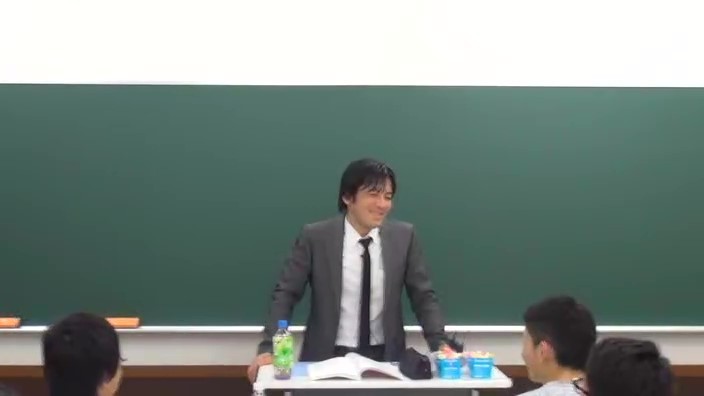娘(小学5年)の英検2級挑戦のよもや話
Hurry up, ( ) we will miss the 10:30 bus.
① and
② but
③ or
④ so
<〔命令文〕+and / or >
「Vしなさい,そうすれば・さもないと」
書き換えると,
Unless you hurry, you will miss the 10:30 bus.
正解:③
「急がないと10時半のバスに乗り遅れるよ」
Hurry up, or we will miss the 10:30 bus.
Quick, or we'll be late for the 10:30 bus.
We need to move faster, otherwise, we'll miss the 10:30 bus.
Hurry, or else we'll fail to catch the 10:30 bus.
Now that she has a baby, she ( ) smokes nor drinks.
① barely
② mostly
③ either
④ neither
<Now (that) S V >「いまや … なので」
that は省略されることが多い。
<neither A nor B> 「AでもBでもない」
(=not either A or B)
cf.) I agreed. Not that I’m satisfied.
(同意した。だからといって満足していない)
正解:④
「今や彼女は赤ちゃんがいるのだからタバコもお酒もやらない」
Now that she has a baby, she neither smokes nor drinks.
Since having the baby, she abstains from both smoking and drinking.
With the arrival of her baby, she's given up both smoking and drinking.
Having a baby means she's refrained from smoking or drinking.
( ) he will marry her or not is none of my business.
① If
② That
③ Though
④ Whether
文頭に位置する if は原則として〈副詞節〉。
①をまず消去。
or not は whether の直後に置かれる場合もある。
<none of one’s business >
『人のかかわりのあることでない』
It’s none of your business.
It’s no business of yours.
Mind your own business.
(よけいなお世話だ)
正解:④
「彼が彼女と結婚するかどうかは私の知ったことではない」
Whether he will marry her or not is none of my business.
I'm not concerned about whether he'll marry her or not.
It's not my place to be involved in whether they'll get married.
Their decision to marry or not isn't something I'm involved in.
This is the way ( ) we can become acquainted with one another.
① how
② in which
③ to which
④ which
S V 構 造が2つで空所の後は完全な文。
④ which の後には不完全な文が来るので消去。
先行詞の the way と関係副詞の how は,
一緒に用いることができないので①が失格。
the way の後では how の代わりに,3つの可能性。
★ in which
★ that
★ 関係副詞を省略
よって,②in whichを選ぶ。
〈前置詞+関係代名詞〉は結局
〈前置詞+名詞〉で〈副詞〉に相当する。
副詞は文の構造に影響を与えないので,
〈前置詞+関係詞+完全な文〉の構造になり,
〈関係副詞+完全な文〉に相当する。
正解:②
「このようにして私達はお互いに知り合うことができるのです」
This is the way in which we can become acquainted with one another.
This is how we can get to know each other.
Here's the method for us to familiarize ourselves with one another.
Here's how we can become acquainted with each other.
Tom has a lot of friends, many of whom ( ).
①he was at school together
② he was at school with
③ he was at school with them
④ he was together at school
〈関係代名詞〉は元来〈代名詞〉なので,
次の文を想起すべき問題。
He was at school with many of them .
them が目的格関係代名詞 whomに代わって,
many of whom he was at school with ●
at schoolで school の前に冠詞がないのは
「勉強」という『本来の目的』(抽象概念)
で学校に在籍していたから。
正解:②
「トムには友達が多くいるが,その多くと同じ学校に在籍していた」
Tom has a lot of friends, many of whom he was at school with.
Tom has numerous friends, a large portion of whom he went to school with.
Among Tom's many friends are those he attended school with.
A significant number of Tom's friends are from his school days.
The string ( ) they tied the parcel up with was so weak that the parcel came to pieces when I got it.
① as
② because
③ that
④ what
The string[ ( ) they tied the parcel up with ●]was so weak
S s v V C
that the parcel came to pieces when I got it.
S’ V’ S’ V’
S V 構造が4つで接続詞が2つだから空所は接続詞か関係詞。
空所の後が不完全な文だから,
空所には〈関係代名詞〉が必要。
関係代名詞の可能性があるのは
① as と ③ that と ④ what の3つで
接続詞の ②because を消去。
関係代名詞の as は左に as や such が出現し,
相関構文で用いられるので不可。
whatは名詞節を導くから,
この文では使う余地が無い。
前置詞 with の目的語が欠落していることから,
目的格関係代名詞whichに相当するthatが正解と分かる。
正解:③
「彼らが包みを縛るのに使ったひもは弱かったので,私が受け取ったときには,包みはばらばらになっていた」
The string that they tied the parcel up with was so weak that the parcel came to pieces when I got it.
The string used to tie the parcel was so frail that it fell apart upon arrival.
The parcel disintegrated because of the weak string they used to tie it.
The parcel fell apart because of the poor-quality string they used.
There is no hope ( ) he will recover from illness.
① which
② that
③ for
④ if
S V 構造が二つなので空所は接続詞か関係詞。
空所の後ろのは
he will recover from illness
と完全な文構造が成立。よって
〈関係代名詞〉whichは失格。
③④は意味が通らない。
hope「見込み」の内容を説明する
〈同格〉節をまとめる接続詞 that を用いる。
which が失格なのは he 以下が完全文 であるため。
recover from A「Aから回復する」
正解:②
「彼が回復する見込みはほとんどない」
There is no hope that he will recover from illness.
His recovery from the illness seems impossible.
There's no chance of him recovering from the illness.
The likelihood of his recovery from the illness is nonexistent.
The thought flashed through her mind ( ) she was going to die.
① that
② which
③ whose
④ what
<flash through[across/into] one’s mind>
「(考えが) ぱっと浮かぶ」
S V 構造が2つあり she 以降が完全文。
空所に《関係副詞》か《接続詞》が必要 。
◇〔先行名詞 = 事実, 情報・思考・可能性〕
➪ 同格 that
◇〔先行名詞 = 時・場所・the reason・the way〕
➪ 関係副詞 when / where / why / how
名詞thoughtとthat節が分離していることに注意。
正解:①
「死んでしまうという考えが彼女の脳裏に浮かんだ」
The thought flashed through her mind that she was going to die.
She suddenly thought she was going to die.
The idea crossed her mind that her death was imminent.
A sudden thought struck her that she might be on the brink of death.
Humans differ from other animals ( ) they can use language.
① at which
② for that
③ in that
④ with which
S V 構造が二つ。空所に関係詞/接続詞が必要。
空所の後は完全文。
<A differ from B> 「AはBと異なる」
<前置詞+that節>の形は存在しない。
例外は2つ。
⑴ in that 「…という点において」
⑵ except [but, save] that 「…という点を除いて」
正解:③
「人間は言語を使うという点において他の動物と違う」
Humans differ from other animals in that they can use language.
What sets humans apart from other animals is their ability to use language.
The distinction between humans and other animals lies in their language usage.
The unique characteristic of humans compared to other animals is their capacity for language.
It is not that he made a mistake ( ) that he concealed it that I regret.
① and
② but
③ so
④ if
I regret not [that he made a mistake] but [that he concealed it].
から〈強調構文〉を組み込んだ形。
conceal「隠す」
regret「残念に思う」
〈強調構文〉
「あっちではなくてこっちだ」
というような ‘対比’ 意識をその根底に持ち,
結果「AでなくBだ」の表現とよく結びつく。
It is not so much money as fame that he wanted.
「彼が欲しかったのは金ではなくむしろ名声だ」
正解:②
「残念なのは彼が間違いを犯したことでなく、それを隠したことだ」
It is not that he made a mistake but that he concealed it that I regret.
I don't regret his mistake but rather his decision to conceal it.
My regret isn't about his error but rather his act of hiding it.
It's not his mistake that bothers me but his choice to keep it hidden.
He asked his friend ( ) he was kind enough to lend him the book.
① since
② that
③ if
④ as
〈接続詞〉完全文を従えて〈副詞節〉を導く。
例外的に名詞節もまとめる接続詞が3個。
that「~ということ」
whether[if]「~かどうか」
☆ that ➪ [断定]
☆ whether [if] ➪ [疑念]
「~かどうかOに尋ねる」は〈ask O if ~ 〉
whether でもよいが if が普通。
「疑念」を表す動詞の ask に〈ask O that ~ 〉の形は無い。
正解:③
「彼が自分に本を貸してくれる程に親切かどうか彼は友人に尋ねた」
He asked his friend if he was kind enough to lend him the book.
He inquired whether his friend would be generous enough to lend him the book.
He requested his friend's kindness in lending him the book.
He questioned if his friend would be willing to lend him the book.
The reason for his absence was ( ) he thought he would not be needed.
① that
② why
③ how
④ what
was の補語になるべく名詞節を作りたい。
空所の後ろ
he thought he would not be needed
が欠落要素の無い完全な文構造。
関係代名詞 what は後ろに不完全な文を導くので失格。
〈不完全な文〉:名詞が1個欠落した文構造
基本構造は、
The reason for his absence (S) was(V)[that+完全文](C)
書き換えると,
The reason why he was absent was that he thought he would not be needed.
接続詞thatは名詞節をまとめる。口語的に言い換えると,
The reason for his absence was because he thought he would not be needed.
正解:①
「彼が欠席した理由は自分が必要とされないだろうと考えたことであった」
The reason for his absence was that he thought he would not be needed.
He was absent because he believed he wouldn't be required.
His absence was due to his assumption that he wouldn't be necessary.
The cause of his absence was his belief that he wouldn't be needed.
One minute earlier, ( ) they could have caught the bus.
① and
② but
③ or
④ so
主節のcould have caughtは仮定法表現。
〈条件〉はone minute earlier。
書き換えると,
If they had come one minute earlier, they could have caught the bus.
〈命令文…, and ~ 〉の変形としてこのように
〈副詞句, and ~ 〉「…すれば~」の用法がある。
and以下に仮定法の主節表現が来ることが多い。
また,この形での副詞語句は問題文のように
一般に比較表現となる。
次は〔名詞語句, and ~〕の例。
One more step, and you would have fallen off the cliff.
(もう一歩進んでいたなら,君は崖から落ちていただろう)
正解:①
「1分早ければ,彼らはバスに乗れていただろうに」
One minute earlier, and they could have caught the bus.
If only they were a minute earlier, they would've caught the bus.
A minute earlier, and they would've made it onto the bus.
They missed catching the bus by just a minute.
音読基本英文
Hurry up, or we will miss the 10:30 bus.
Quick, or we'll be late for the 10:30 bus.
We need to move faster, otherwise, we'll miss the 10:30 bus.
Hurry, or else we'll fail to catch the 10:30 bus.
「今や彼女は赤ちゃんがいるのだからタバコもお酒もやらない」
Now that she has a baby, she neither smokes nor drinks.
Since having the baby, she abstains from both smoking and drinking.
With the arrival of her baby, she's given up both smoking and drinking.
Having a baby means she's refrained from smoking or drinking.
「彼が彼女と結婚するかどうかは私の知ったことではない」
Whether he will marry her or not is none of my business.
I'm not concerned about whether he'll marry her or not.
It's not my place to be involved in whether they'll get married.
Their decision to marry or not isn't something I'm involved in.
「このようにして私達はお互いに知り合うことができるのです」
This is the way in which we can become acquainted with one another.
This is how we can get to know each other.
Here's the method for us to familiarize ourselves with one another.
Here's how we can become acquainted with each other.
「トムには友達が多くいるが,その多くと同じ学校に在籍していた」
Tom has a lot of friends, many of whom he was at school with.
Tom has numerous friends, a large portion of whom he went to school with.
Among Tom's many friends are those he attended school with.
A significant number of Tom's friends are from his school days.
「彼らが包みを縛るのに使った紐は弱かったので,私が受け取った時には包みはばらばらになっていた」
The string that they tied the parcel up with was so weak that the parcel came to pieces when I got it.
The string used to tie the parcel was so frail that it fell apart upon arrival.
The parcel disintegrated because of the weak string they used to tie it.
The parcel fell apart because of the poor-quality string they used.
「彼が回復する見込みはほとんどない」
There is no hope that he will recover from illness.
His recovery from the illness seems impossible.
There's no chance of him recovering from the illness.
The likelihood of his recovery from the illness is nonexistent.
「死んでしまうという考えが彼女の脳裏に浮かんだ」
The thought flashed through her mind that she was going to die.
She suddenly thought she was going to die.
The idea crossed her mind that her death was imminent.
A sudden thought struck her that she might be on the brink of death.
「人間は言語を使うという点において他の動物と違う」
Humans differ from other animals in that they can use language.
What sets humans apart from other animals is their ability to use language.
The distinction between humans and other animals lies in their language usage.
The unique characteristic of humans compared to other animals is their capacity for language.
「残念なのは彼が間違いを犯したことでなく、それを隠したことだ」
It is not that he made a mistake but that he concealed it that I regret.
I don't regret his mistake but rather his decision to conceal it.
My regret isn't about his error but rather his act of hiding it.
It's not his mistake that bothers me but his choice to keep it hidden.
「彼が自分に本を貸してくれる程に親切かどうか彼は友人に尋ねた」
He asked his friend if he was kind enough to lend him the book.
He inquired whether his friend would be generous enough to lend him the book.
He requested his friend's kindness in lending him the book.
He questioned if his friend would be willing to lend him the book.
「彼が欠席した理由は自分が必要とされないだろうと考えたことであった」
The reason for his absence was that he thought he would not be needed.
He was absent because he believed he wouldn't be required.
His absence was due to his assumption that he wouldn't be necessary.
The cause of his absence was his belief that he wouldn't be needed.
「1分早ければ,彼らはバスに乗れていただろうに」
One minute earlier, and they could have caught the bus.
If only they were a minute earlier, they would've caught the bus.
A minute earlier, and they would've made it onto the bus.
They missed catching the bus by just a minute.
要点整理ノート【関係詞】
Ⅰ. 2文合成
☆ 主格
I know an American .
He speaks Japanese well.
➪ I know an American who speaks Japanese well.
★人称・数は先行詞に一致する
(a) She has a son who lives in Tokyo.
(b) She has two sons who live in Tokyo.
☆ 目的格
The steak was good.
I ate it yesterday.
➪ The steak which I ate yesterday was good.
★目的格の関係代名詞は省略可
=The steak I ate yesterday was good.
Ⅱ. whose
⑴ He was reading a book . I didn't know its title.
➪ He was reading a book whose title I didn't know.
彼は,私が題名を知らない本を読んでいた
⑵ He was reading a book . I didn't know the title of the book .
➪ He was reading a book the title of which I didn't know.
彼は,私が題名を知らない本を読んでい
Ⅲ. 関係代名詞 & 関係副詞
関係代名詞と関係副詞の使い分け:
次の空所はwhich かwhere か?
★ This is the place ( ) I lived.
これが私の住んでいた場所です。
*空所にwhich は不可。
I lived the place.とは言えない。
live が自動詞。
正解はwhere か in which。
★ This is the place ( ) I visited.
これが私の訪ねた場所です。
*関係副詞where は不可。
visit は他動詞で I visited the place. と言える。
よってwhich が正解。
以上から言えることは,
関係代名詞と関係副詞は後ろの文構造が異なる。
❑ 関係代名詞 ➪ 不完全文
❑ 関係副詞 ➪ 完全文
Ⅳ. < 前置詞+関係代名詞 >
〈前置詞+関係代名詞〉は前提となるセットフレーズがある。
1. 右側の動詞部分に注目し,熟語を見抜く
☞ be successful in
Poor planning may result in choosing a job in which you will not be truly successful.
(1) Poor planning may result in choosing a job.
(2) You will not be truly successful in the job.
計画がひどいと,まともに成功しない職を選ぶことになる。
2. 左側の先行詞に注目し,熟語を見抜く
☞ under the conditions
The conditions under which these works were created were usually of a most difficult kind.
(1) The conditions were usually of a most difficult kind.
(2) These works were created under the conditions. * under the condition = under them
この素晴らしい作品が作られた状況は通常,非常に困難な種のものであった
3. 右側の動詞と左側の先行詞の両方を見て見抜く
☞ talk with
She is the girl with whom I talked yesterday.
(彼女は私が昨日話をした女の子です)
(1) She is the girl.
(2) I talked with her yesterday.
◆ 一般に関係副詞=前置詞+関係代名詞と言える
☆ where =in[at, on] which
☆ when =in[at, on] which
☆ why =for which
☆ how =in which
China is a country which I want to visit.
=China is a country where I want to live.
=China is a country (which) I want to live in.
=China is a country in which I want to live.
Ⅴ. 継続用法
(1) I said nothing, which made him still more angry.
➪ I said nothing, and it made him still more angry.
私は何も言わなかったが,そのため彼は一層腹を立てた。
(2) I respect his father, who is a great scholar.
➪ I respect his father, for he is a great scholar.
私は彼のお父さんを尊敬しています。というのも,彼は偉大な学者だからです。
(3) Alice, who is the brightest girl in the class, solved it.
➪ Alice, because she is the brightest girl in the class, solved it.
アリスはクラスで一番頭のいい少女なので,それを解いた。
(4) He spoke English and French, neither of which I could understand.
➪ He spoke English and French, but I could understand neither of them.
彼は英語とフランス語を話したが,私はそのどちらも理解できなかった。
(5) I went into the restaurant, where I happened to meet her.
➪ I went into the restaurant, and there I happened to meet her.
私はそのレストランに入って,そこで偶然彼女に会った。
Ⅵ. 〔関係形容詞〕
❑ what〈関係形容詞〉「少ないながらもすべての〜」
He gave me what little money he had.
彼は私に少ないながらもすべてのお金をくれた。
❑ which〈関係形容詞〉「その〜」
The letter was written in French, which language I do not understand.
=The letter was written in French, and I do not understand the language.
その手紙はフランス語で書かれていたが,その言葉は私にはわからない。
Ⅶ. I think (believe/suppose)
I saw a woman who (I thought) was a friend of my mothers.
(⺟の友人だと思われる婦人を見かけました)
<who/which+SV+V’X> 構造を
『連鎖関係詞』
と言う。
SV を〈挿入〉と考えて
文構造から取り除いて考えると分かり易い。
以下類例。
Do what (you think)is right.
自分が正しいと思うことをしなさい。
Which is the girl whom (you said)he was going out with ?
彼がつき合っていると君が言った女の子はどの子ですか。
Ⅷ. 文または文の一部を先行詞とする関係詞
(1) Her father returned home from abroad, which made her very glad.
彼女の父は外国から帰ってきたが,そのことで彼は大変喜んだ。
(2) She said she had no money, which was a lie.
彼女は金がないといったが,それはうそだった。
(3) I advised him to give up drinking, which he never did.
私は彼に酒をやめるように忠告したが,彼は決してそうしなかった。
(4) As is often the case with Nancy, she was late for school again.
ナンシーにはよくあることだが,彼女はまた学校に遅刻した。
★関係詞が分離する場合
(1) Jane is the only one of her family that has no love for rock music.
ジェーンは家族の中でロックが好きではないただ1 人の人間だ。
(2) He knows that way of speaking which attracts everyone.
彼は皆を引きつける話し方を心得ている。
Ⅸ. 関係代名詞 than
He does not have the money. + The money is needed.
(a) He does not have the money which is needed.
彼は必要なお金を持っていない。
(b) He does not have more money than is needed.
彼は必要以上のお金を持っていない。
(1) He has more money than he had last year.
彼は去年以上にお金を持っている
(2) I have more money than I can spend.
私は使いきれないくらいのお金を持っている。
Ⅹ. 複合関係詞 whoever・whomever
◆ 〔名詞節〕
❑ whoever/whomever…
「〜する人はだれでも」
(1) You may invite to the party whoever likes to come .
来たい人なら誰でもパーティーに招待していいよ。
(2) He spoke to whomever he met.
彼は会う人なら誰でも話しかけた。
◆ 〔副詞節〕
❑ whoever (=no matter who) …「誰が〜しても」
❑ whomever (=no matter whom) …「誰に(を)〜しても」
Whoever comes, I won't let him in.
たとえ誰が来ようとも,中には入れないよ。
Whomever she invites , she is very kind to him.
たとえ誰を招待しても,彼女はとても親切だ。
Ⅺ. 連鎖関係詞
whenever・wherever
〔副詞節〕「〜するときはいつでも」・「〜する所はどこでも」
❑ whenever ~ (=no matter when ~) 「いつ〜しても」
❑ wherever ~ (=no matter where ~) 「どこに〜しても」
(1) He'll give you advice whenever you ask for it.
あなたが求めればいつでも彼はあなたに助言を与えてくれますよ
(2) Sit wherever you like.
好きな所ならどこでもすわりなさい。
whichever
〔名詞節〕 「〜するものはどちらでも」
(1) Take whichever you like.
あなたの好きなものをどちらでも取りなさい。
(2) You may use whichever dictionary there is on the desk.
机の上にあるのならどちらの辞書でも使ってもいいよ。
〔副詞節〕 「どちらが(を)〜しても」= no matter which ~
(1) Whichever wins, I'll be happy.
どちらが勝っても,私はうれしい
(2) Whichever side wins, I'll be happy.
どちらの側が勝っても,私はうれしい。
whatever
〔名詞節〕「〜するものは何でも」「どんな〜でも」
(1) I will do whatever I can do for you.
私はあなたのためにできることなら何でもしてあげよう。
(2) Please sing whatever song you know.
あなたの知っているのならどんな歌でも歌ってください。
〔副詞節〕
「何が(を)〜しても」
「どんな…が〜しても」(=no matter what ~)
(1) Whatever you ( may ) say, I don't believe you.
君が何を言っても,私は信じない。
(2) Whatever language you study, you cannot master it in a short time.
どんな言語を学ぶにしても,短時間では習得できない。
no ~ whatever「少しの~もない」<否定の強調>
I know nothing whatever about it.
私はそれについて全く何も知らない
however
〔副詞節〕
「どんなに〜でも」
「どんな方法で〜しても」(=no matter how)
(1) The novel, however interesting ( it is ), is not good for children.
どんなにおもしろくても,その小説は子供にはよくない。
(2) However we ( may ) go, we must get there by seven.
どんな方法で行くにしても,7 時までにそこに着かねばならない。
(3) However often you ( may ) try that way, you will not succeed.
その方法では何度やっても,成功しないだろう。
cf.) 論理接続の副詞「しかしながら」
Air travel is fast; sea travel is, however, restful.
空の旅は速い,しかし,船旅は落ち着く。
◆ 複合関係詞 まとめ
⑴ 複合関係代名詞 ➪ 名詞節
whoever(whomever), whichever, whatever
Whatever has a beginning has an end.
始まりがあるものは何でも終わりがある。
The club admits whoever pays the entry fee.
そのクラブは入会料金を払う者なら誰でも受け入れます。
Don’t tell it to whomever you don’t trust.
信頼していない人には誰であろうとそれを伝えないで。
Choose whichever you think better.
君が良いと思うほうのどちらでも選んでよいです。
⑵ 複合関係代名詞・複合関係副詞 ➪ 副詞節
whoever(whomever), whichever, whatever
whenever, wherever, however
Whoever may come, tell him I’m out.
=No matter who may come, tell him I’m out.
誰が来ようとも,私は不在であると伝えてください。
Whatever may happen, I will never change my mind.
= No matter what may happen, I will never change my mind.
何が起ころうとも,私は決して考えを変えません。
Whenever you may visit him, you will find him studying.
= No matter when you may visit him, you will find him studying.
いつ訪問しても,彼は勉強しているよ。
However hard he may try, he will not succeed.
= No matter how hard he may try, he will not succeed.
どんなにがんばっても,彼は成功しないだろう。
今後も英語学習に関わる情報、体験談を発信していきます。










